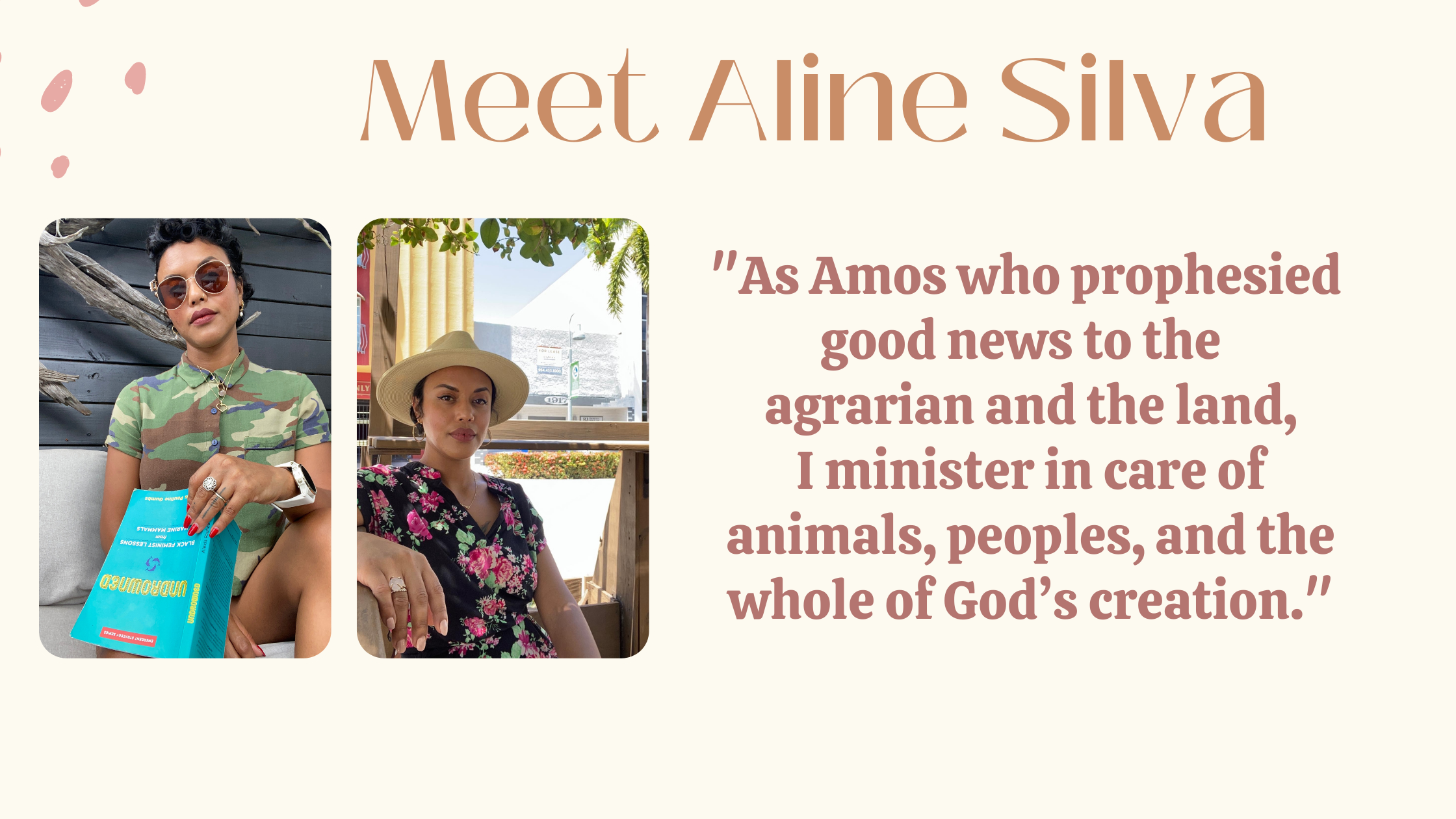by Aline Silva
I was born in Sao Paulo, Brasil and grew up between the cities of Cotia and Itapevi, just on the outskirts of Sao Paulo. Currently, I reside in the unceded lands of the Tequesta, Taino, and Seminole peoples, named South Florida, USA with my main squeeze and canine companion, Paçoca (pah-saw-kah). I am one of two co-directors of CreatureKind focusing on Community Development and am the founder, creator, and director of the CreatureKind Fellowship Program. As you may have read, CreatureKind encourages Christians to recognize faith-based reasons for caring about the wellbeing of fellow animal creatures used for food, and to take practical action in response.
I have been coaching for a little over six years and pastoring folks of all ages since I was twenty-one years old. I graduated with my Master of Divinity from Central Baptist Theological Seminary in 2014 and shortly after became a certified Life Coach.
As you all may have experienced, Christian leadership and ministry take many forms. My work with CreatureKind is a large part of what it means for me as a Christian individual doing church ministry that is relevant for this very time and place. As I will highlight below, the farming of animals has permeated many areas of my and my community’s lives.
I have been plant-based since 2010 when I suddenly became aware of our current industrial agriculture practices and how they prevent fellow creatures from worshiping our Creator.
As a Queer person, being plant-based and advocating for the welfare of farmed animals means caring for those whose bodies are mutilated or discarded shortly after birth simply for not fitting the colonized gender binary or its standards. It also means resisting an industry and questioning their easy access to hormones and antibiotics for cents on the dollar, for 70+ billion land animals, when we cannot provide hormone therapy for my trans siblings, or universal healthcare for all, let alone for the most vulnerable or marginalized, or even a vaccine patent for over-explored communities that are purposefully left even more vulnerable during the pandemic.
As Amos who prophesied good news to the agrarian and the land, I minister in care of animals, peoples, and the whole of God’s creation. If being a plant-based Christian is part of the Gospel, and if the Gospel truly is the Good News of God, it’s got to be so for every body, which is why we seek to dismantle and resist the systems described here that dominate our lives.
I look forward to walking alongside each of you as you discern how your Christian faith will inform how you love farmed animals, the environment, and other people, including those working in the industry, such as farm and meatpacking plant workers here and all over the world.

